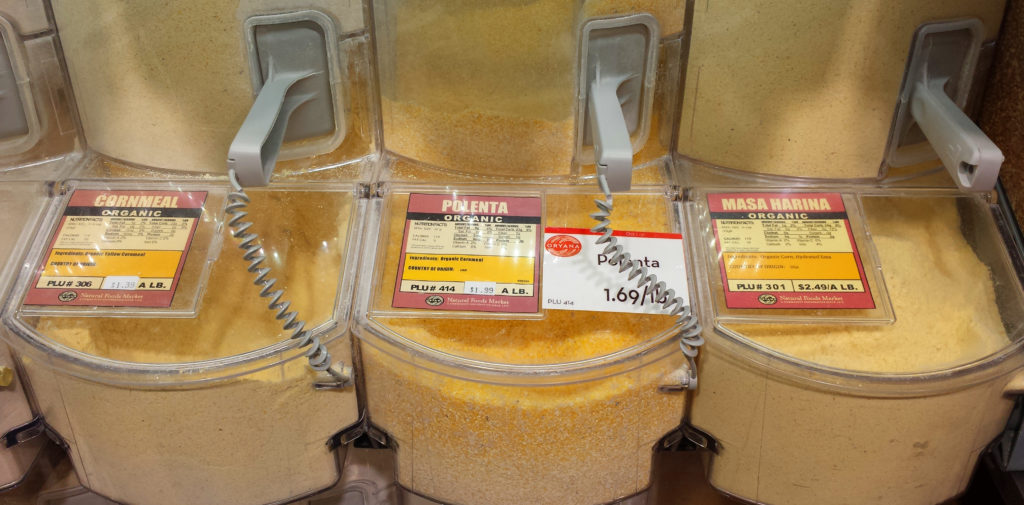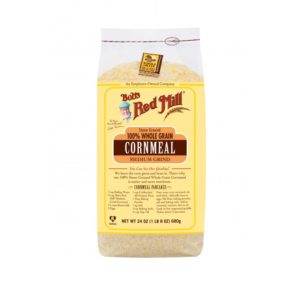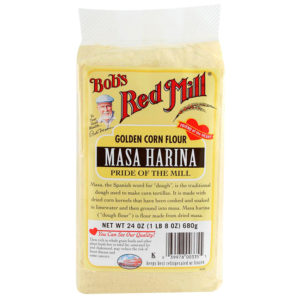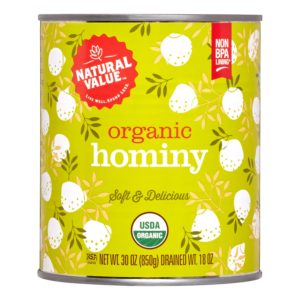Cooking with Corn Products

Oryana carries several types of corn products including polenta, grits, masa harina, and cornmeal. What are the differences? Can they be used interchangeably?
What’s the difference between polenta and grits?
Both polenta and grits are made from dried corn (field corn, not sweet corn) that’s ground into smaller, coarse bits. For all practical purposes, there is relatively little difference between polenta and grits. Traditionally they are made with two different types of corn: Most grits in the South are made from a class of corn called dent corn whereas in Italy, most polenta is made from a class of corn called flint corn, which holds its texture better. If you’re shopping for one of these and can’t find it, purchasing the other product should suit your needs just fine.
Technically speaking, polenta is really a dish, not an ingredient. It just refers to the porridge or mush made from ground corn. Oryana also carries precooked polenta in tubes.
What is cornmeal?

Cornmeal is simply dried corn kernels ground into one of three textures: fine, medium, and coarse. Cornmeal is used for making cornbread but you can also use it to add texture to baked goods, dust baking surfaces for things like pizza to prevent the dough from sticking, or as a thickener for soups and chilis. If the package isn’t labeled with the coarseness of the grind, it’s most likely medium. You could use coarse or medium grind cornmeal to make polenta or cornmeal mush.
What is Masa Harina?

Masa harina is finely ground cornmeal (sometimes also called corn flour) made from dried corn kernels that have been cooked in limewater, then dried and ground again, which gives masa harina its distinctive flavor. Masa harina is used to make corn tortillas, tamales and other Latin American foods. The chemical changes from soaking the corn in a lime solution allows it to be formed into a dough, and also allows the nutrient niacin to be absorbed by the digestive tract. Regular cornmeal does not form a dough when mixed with water, and – interesting side note – a diet heavily reliant on cornmeal is a risk factor for a disease called pellagra, which is caused by a lack of niacin.
What is Hominy?

Hominy is whole field corn kernels that have been soaked in lime or lye. Hominy is available in dried and canned form. Oryana carries Natural Value canned hominy.
Here are a few easy recipes using some of these corn products:
Basic Grits recipe:
5 cups liquid (water, milk, broth, or mixture)
1 cup grits
1 teaspoon salt
butter
Add liquid to a pot. Bring to a boil. Stir in grits and salt, lower heat, and place lid on pot. Cook for 30 minutes, stirring occasionally. Stir in butter and cook for another 5 minutes.
Easiest Basic Polenta recipe:
4 cups liquid such as water, broth, or milk, or combination
1 cup polenta
1 teaspoon salt
butter or olive oil
Add the liquid to a large pot. Sprinkle in the polenta while whisking to prevent clumps. Whisk in the salt. Bring to a boil over medium high heat. Reduce heat to low. Stir every few minutes for about 30 minutes. When it starts to pull away from the sides of the pan it’s almost done. Add some butter or olive oil to make it smooth and creamy.
Basic Cornbread
1 1/2 cups yellow cornmeal
1/2 cup all-purpose flour
1 tablespoon sugar (You can add more or less depending on how sweet you like your cornbread)
1 1/2 teaspoons baking powder
1 teaspoon sea salt
1 1/2 cups whole milk
2 large eggs
6 tablespoons unsalted butter (3/4 stick), melted, plus more for coating the baking dish
- Heat oven to 425°F. Coat an 8-by-8-inch baking pan with butter.
- Place the cornmeal, flour, sugar, baking powder, and salt in a large bowl and whisk to combine.
- Whisk together the milk and eggs in a separate bowl. Pour the milk mixture into the cornmeal mixture and stir until just incorporated. Stir in melted butter.
- Pour batter into prepared pan and bake about 20 – 25 minutes or until a toothpick inserted into the center comes out clean. Let cool a few minutes before cutting.